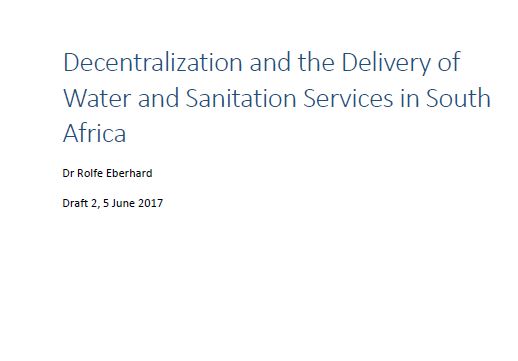Decentralization and the Delivery of Water and Sanitation Services in South Africa
As part of the political settlement in the transition to democracy, South Africa introduced a threetier devolved system of government in 1996. The system was embedded in the Constitution, and the responsibility for the provision of water and sanitation services was assigned to local government, the third tier of government. The Constitution also included a Bill of Rights requiring the government (national, provincial and local) to progressively realize the right to water and adequate sanitation for all citizens within its available means. How well has the decentralized provision of water and sanitation served ordinary South Africans, particularly the poor? What are the binding constraints to improving and sustaining reliable water and sanitation services in South Africa in the context of decentralized provision? This case study on South Africa is part of an international comparative study on the decentralized provision of water and sanitation services.
